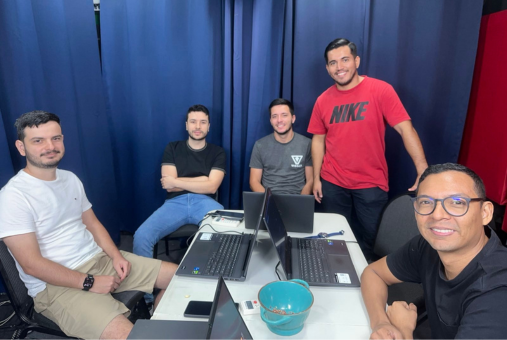
The line between journalist and influencer is increasingly blurry, raising questions about ethics, credibility and the future of journalism.

We asked some of Latin America’s top investigative journalists which tools—both new and established—are powering their reporting. Here’s what they’re using to track public contracts, map networks of power, and make sense of mountains of information.

Researchers, content creators and journalists considered what they might learn from each other in terms of accuracy, authenticity and reach.

AI has quickly reshaped journalism, so how are newsrooms adapting? At ISOJ 2025, experts agreed that while AI can help reporting, storytelling, and misinformation detection, human oversight remains essential.

As media outlets in Latin America face sustainability challenges, NINA has become a tool for facilitating cross-border investigations. Despite high maintenance costs, the Latin American Center for Investigative Journalism (CLIP) supports this platform, allowing journalists to save time and resources in their search for key information.

Learn the meaning of advanced AI terms such as data mining, predictive analytics, and semantic search. See examples of how journalists and news outlets around the world have applied these concepts to make the most of AI in their daily work.

Through a theatrical performance, investigative journalists from Colombian site Rutas del Conflicto tell the story of how the Sikuani Indigenous people were displaced from their ancestral home.

Puerto Rico’s Center for Investigative Journalism, with support from the American Journalism Project, has developed a custom AI assistant that supports—but doesn’t replace—human editors translating news articles.

The report Journalism and Artificial Intelligence – Impact on Brazilian publishers shows that AI is boosting productivity in Brazilian newsrooms but failing to drive innovation. Meanwhile, media outlets face growing risks as Big Techs exploit their content to attract traffic and train their AI.

Combining investigative journalism and academic research, Agência Pública's unprecedented project mapped the genealogies of 116 Brazilian politicians to show links between power and the country's slave-owning past.

In 2024, journalists from Mexico to Nicaragua to Brazil faced mounting violence, censorship and harassment — yet persisted through courageous reporting. Here are our reporters’ most pressing and memorable stories of the year.

From AI tools to combat censorship and disinformation to international collaborations exposing cross-border crime, these 10 projects advanced journalism and made an impact on their communities.